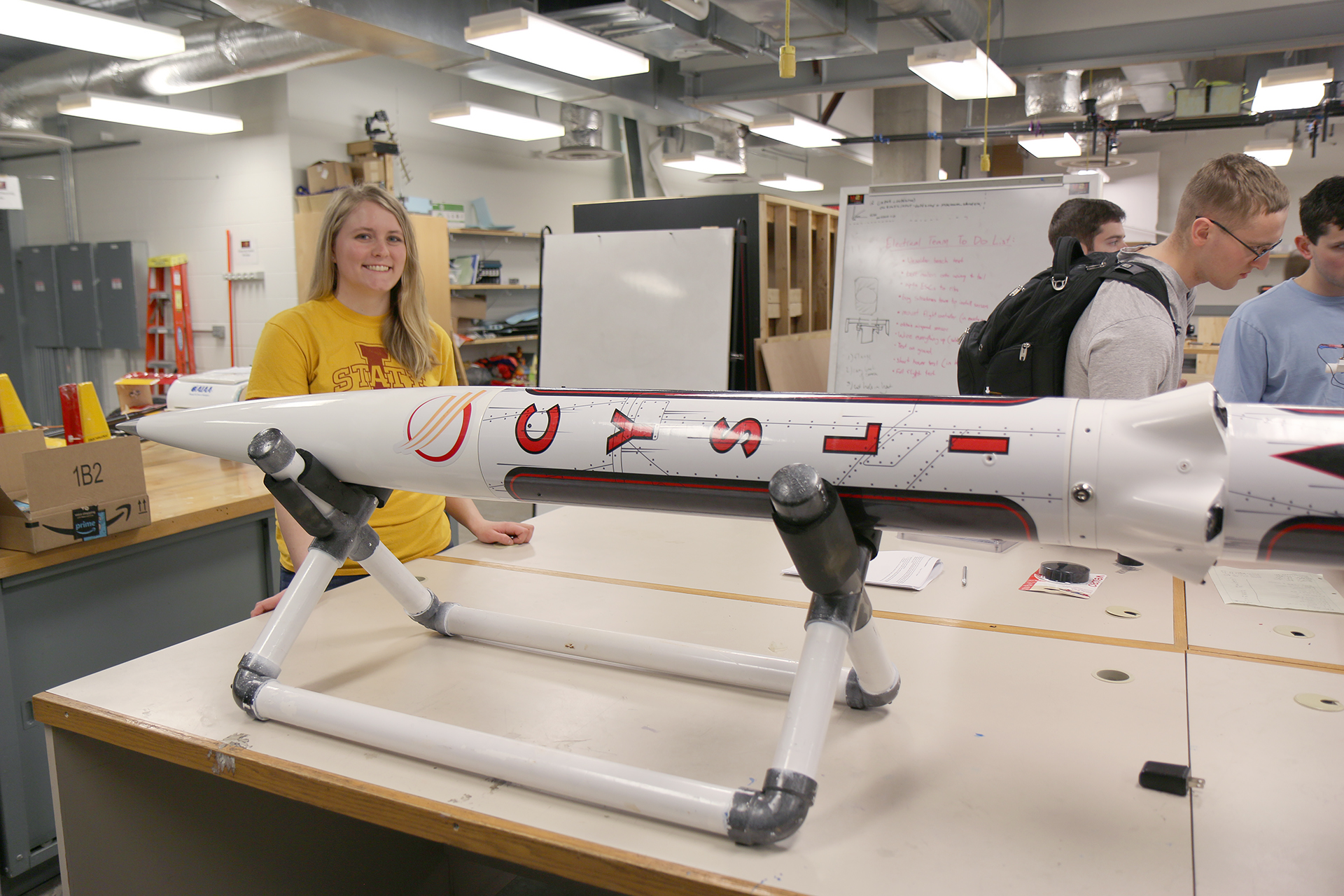
The sky’s the limit for what you can do with an English degree. Just ask LAS graduating senior Cassandra Gearhart (’18 English and technical communication). She has paired her two loves — writing and aviation — to have an out of this world adventure at Iowa State.
A path into aviation
Gearhart’s grandfather was a World War II pilot. Her dad worked on minuteman missiles in the U.S. Air Force. Her two older brothers are avionics technicians. It was only a matter of time before she navigated her own path into aviation— but it definitely hasn’t been a direct flight.
In high school, she considered aerospace engineering but decided she didn’t enjoy math enough. She looked instead to her lifelong love of writing and reading and decided to major in English, figuring she would find a job in publishing, and quickly added a technical communication major, too.
Making connections
Sometimes you make connections in unlikely places on campus. During her sophomore year, Gearhart joined the Cyclone Swing Dance Society and became friends with a student who was working on a rocket project with the Department of Aerospace Engineering in its Make to Innovate program.
"She said, ‘We do this student launch initiative where we design and build a rocket for NASA, but a huge part of that is the documentation and writing. We need advice. We’re engineers. We don’t know how to write. Would you join our team to be a technical writer next year?’” Gearhart said.
The Cyclone Student Launch Initiative (CySLI) was the perfect fit for Gearhart who grew up building model rockets and loves tinkering with her dad on cars and home renovation projects. CySLI’s extensive documentation manuals, some of which are 200 plus pages long, require tinkering, too – of sentences.
"This semester we physically built the rocket in addition to writing reports," Gearhart said, who traveled to Alabama with the team for a NASA competition. "We had to make sure all the systems were functioning. There are a lot of things to be learned from the program that can come in handy as a technical communication major, because if you can physically do the thing yourself you can write about it and make it more step by step."
‘Hello, I’m an English major’
Through her connections with CySLI, Gearhart learned about a technical writing internship with Textron Aviation, a company with well-known aviation products such as Cessna aircraft.
She took her resume to Iowa State’s Engineering Career Fair and went for the straightforward sell: "Hello. I’m an English major. I see you have this technical writing internship." Her writing skills and aviation interest intrigued the recruiters. Within a week, she had interviewed and was hired for a summer internship in Textron’s technical publications department.
Gearhart spent the summer working on sustaining publications, using engineering drawings, files and research to verify inspection procedure changes and write updated manual copy. The time flew by, she said.
"I get to look at it and see the parts and visualize it going together in my head and write a procedure based on that, and that’s a really fun, fascinating challenge," she said.
Spending a day writing an emergency light battery check procedure may sound tedious to some people, but technical writing has serious safety implications, Gearhart said.
“Communication to that degree is super important and in a lot of cases, it’s a very serious safety hazard,” she said. “Being able to communicate clearly and effectively on paper so someone does not hurt themselves.”
Think outside the box
Gearhart will begin a full-time position with Textron Aviation following graduation as a technical publications engineer. Technical writers have to be willing to learn technical matter and material, she said. She took ground school during her internship to build her aircraft knowledge and plans to do flight hours as well with her new job.
"Thinking outside the box with what you can do with your major or career is important," she said. "I technically have an engineering job with an English degree. Find where your skill set lies — mine happened to be with planes and aviation and engineering documents— and apply the English major to it."